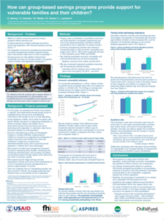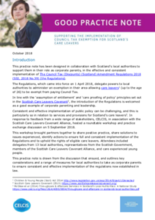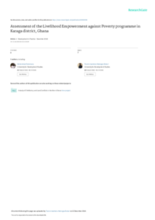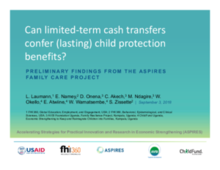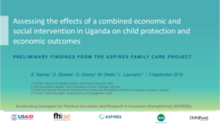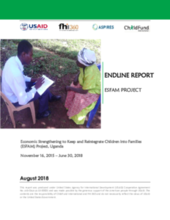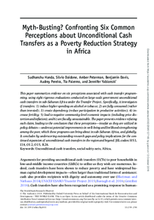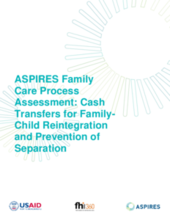Displaying 61 - 70 of 271
This poster presents the findings of an assessment of two Family Care projects in Uganda that implemented savings groups as part of integrated family and economic strengthening interventions with families at-risk of a child separating.
This webinar reviews some of the new and ongoing work conducted under the Transfer Project, a multi-organizational research and learning initiative. The first presentation will summarize findings from recent reviews published on understanding linkages and impacts of cash transfers and social safety nets on intimate partner violence and violence against children in low- and middle income settings.
This practice note is drawn from the discussion and outlines key considerations and a range of measures for local authorities to take as Corporate Parents to ensure consistent and effective implementation of the regulations, now established in law.
This article assesses the contribution of the Livelihood Empowerment Against Poverty (LEAP) programme in reducing rural poverty in the Karaga district of Northern Ghana, using a mixed research design to compare the livelihoods of beneficiaries and non-beneficiaries.
This presentation highlights the preliminary findings from the ASPIRES Family Care Projects as regards the impacts of cash transfers on child protection benefits.
This presentation, delivered at the ISPCAN Conference in September 2018, highlights the preliminary findings from the ASPIRES Family Care Projects as regards the effects of a combined economic and social intervention on child protection and economic outcomes.
This study tests the effects of economic intervention—alone and in combination with a family-focused component—on parenting outcomes and children’s reports of violence in rural Burkina Faso.
This final report describes the Economic Strengthening to Keep and Reintegrate Children into Families (ESFAM) project and presents findings from an evaluation of the program, including its implementation and outcomes as well as its impacts.
This paper summarizes evidence on six perceptions associated with cash transfer programming, using eight rigorous evaluations conducted on large-scale government unconditional cash transfers in sub-Saharan Africa under the Transfer Project.
This evaluation examined the designs and implementation processes of the cash transfer components of ChildFund’s Economic Strengthening to Keep and Reintegrate Children in Family Care (ESFAM) and AVSI Foundation’s Family Resilience (FARE) projects in Uganda and identified practical lessons for implementers.

